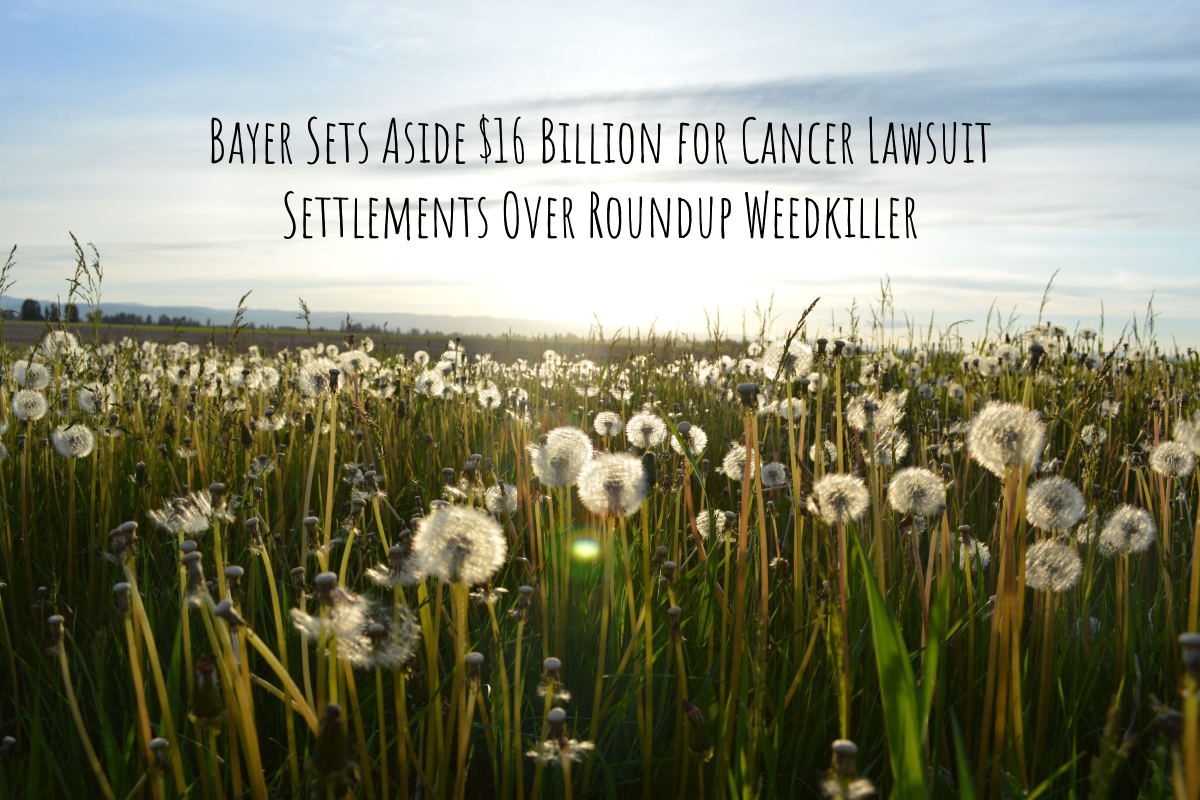Bayer Sets Aside $16 Billion for Cancer Lawsuit Settlements Over Roundup Weedkiller
Bayer, the company behind the widely-used weedkiller Roundup, is facing numerous lawsuits. These lawsuits claim that Roundup causes cancer. In response, Bayer has set aside a huge sum of money—$16 billion—to settle these lawsuits. This article will explain what Roundup is, who uses it, and why it is causing such a big legal issue.
What is Roundup?
Roundup is a popular weedkiller used to kill unwanted plants. It’s widely used among farmers, gardeners, and homeowners. People use it to keep their lawns, gardens, and fields free of weeds. The main ingredient in Roundup is called glyphosate. Glyphosate works by targeting an enzyme that plants need to grow. Without this enzyme, the plants die.
Who Uses It?
Roundup is used by many different people. Farmers use it to protect their crops from weeds. By killing the weeds, they help their crops grow better. Homeowners and gardeners use it to keep their lawns and gardens looking nice. It’s also used by cities and towns to keep parks and public spaces free of weeds.
The Lawsuits
The trouble began when people started claiming that Roundup causes cancer. Many of these claims come from people who used the product regularly. They say that after using Roundup for many years, they developed cancer. The type of cancer most often mentioned in these lawsuits is called non-Hodgkin lymphoma. This is a cancer that starts in the immune system.
As more and more people came forward with these claims, the lawsuits piled up. Bayer found itself in the middle of a legal storm. People accused the company of not warning users about the potential dangers of their product. They say Bayer knew about the risks but didn’t do enough to protect people.
$16 Billion Set Aside
To deal with these lawsuits, Bayer has set aside $16 billion. This money is meant to cover the costs of settling the cases. A settlement is when the company agrees to pay the plaintiffs (the people who filed the lawsuits) a certain amount of money. In return, the plaintiffs agree to drop their lawsuits.
The $16 billion is a huge amount of money. It shows how serious the situation is for Bayer. By setting aside this money, Bayer is trying to put an end to the legal battles. They hope that by settling the cases, they can move forward and focus on their business.
The Debate
There is a big debate about whether Roundup really causes cancer. Some scientists say that glyphosate is safe to use. They argue that the studies linking it to cancer are not strong enough. They point out that glyphosate has been used for decades and is approved by many health and safety organizations.
On the other hand, some studies suggest a link between glyphosate and cancer. These studies have found that people who use glyphosate regularly are more likely to develop non-Hodgkin lymphoma. The World Health Organization (WHO) has even classified glyphosate as “probably carcinogenic to humans.” This means it probably can cause cancer.
What’s Next?
The future is uncertain for Bayer and Roundup. With $16 billion set aside, Bayer is clearly taking the lawsuits seriously. However, the debate over glyphosate’s safety is likely to continue. People will keep asking questions about the risks of using Roundup.
In the meantime, farmers, gardeners, and homeowners will have to decide whether to keep using the product. They will need to weigh the benefits of a weed-free garden or field against the potential health risks. Bayer will also need to work hard to rebuild trust with its customers.
Wrap Up
The lawsuits against Bayer highlight a significant issue with Roundup. As more people come forward with claims, Bayer is taking action by setting aside $16 billion for settlements. While the debate over glyphosate’s safety continues, users of the product must stay informed and make choices that protect their health.


